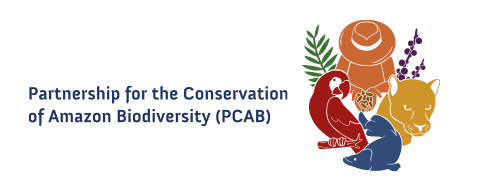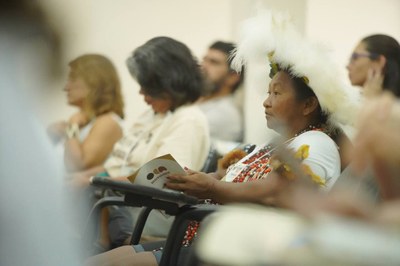Brazil Nut Chain: Strengthening Communities and Forest Conservation
October / November, 2022 — In addition to being a source of income for traditional communities in the Amazon, products from sustainable value chains, such as the Brazil nut, are strengthening collective organizations that defend the rights of Indigenous Peoples, riverine, and quilombola communities. These communities contribute to biodiversity conservation and the preservation of the standing forest.
The first National Brazil Nut Producers Meeting — an unprecedented three-day event held in late August in Manaus, Amazonas, brought together representatives of 57 extractivist organizations and 61 protected areas from seven Brazil-nut-producing states. They discussed the obstacles at the bottom of the Brazil nut value chain, and how to address them.
The topics included pricing, fair trade, the creation of trade networks, territorial integrity, political advocacy representation, and valuing Brazil nut gatherers and producers. “I am sure that what we are doing here matches what happened in March 1989, that is, fostering a stronger alliance among forest peoples,” said Júlio Barbosa, president of the National Council of Extractive Populations (CNS), recalling the historic alliance led by Chico Mendes, which protected Indigenous territories and led to the creation of extractive reserves.
Female Brazil nut producers also demanded more recognition and visibility. “We, women, are rarely seen as Brazil nut producers; people only think of men doing this job. We have no visibility although we also perform the same activities. We leave home together with the men, collect the nuts, and apply good practices, but are not recognized,” said Shirlei Arara, a local leader at the Igarapé Lourdes Indigenous Land, in Rondônia.
The event was hosted by the Brazil Nut Collective and the Amazon Nut Observatory (OCA) in partnership with a number of civil society organizations and community-based organizations that produce Brazil nuts. It was supported by the Bioeconomy and Value Chains project, developed under the Brazil-Germany Cooperation for Sustainable Development, USAID/Brazil, and the Climate and Land Use Alliance (CLUA).
According to André Tomasi, coordinator of the Brazilian Education Institute (IEB) and member of the OCA Executive Secretariat, the meeting was an opportunity for different peoples to come together. “We are talking about Brazil nuts, but deep down we are talking about peoples and individuals, and we are getting organized to fight for what we want.”
The organization — The Brazil Nut Collective is a network of more than 150 extractive producers from 70 community organizations in seven producing states. Since 2017, it has been involved in participatory price monitoring of Brazil nuts.
It is organized by OCA, which is also a network of organizations whose mission is to produce knowledge and intelligence, in addition to mobilizing different actors in the value chain to consolidate a fair market that values peoples, populations, and communities while promoting forest conservation.
The first National Brazil Nut Producers Meeting included three sessions: “Who we are and where we come from”; “Where we are”; and "Success Stories in the Brazil Nut Chain".
Participants shared ideas and demands about future paths for the Brazil Nut Collective. The event ended with the reading of the first National Brazil Nut Producers Meeting Charter. It addresses representativeness in the value chain, the problems and threats faced by the production base, and participants' demands to ensure that their work and quality of life are properly valued.
For Bruno Dutra, from the Iratapuru River Mixed Cooperative of Extractive Producers (COMARU), from the state of Amapá, Brazil nuts are more than just a value chain. “Sometimes we think we are selling nuts, but we are actually selling history, we are selling dreams. The Brazil Nut Collective helps to unite us and find opportunities.”
Learn more about OCA here (in Portuguese).



